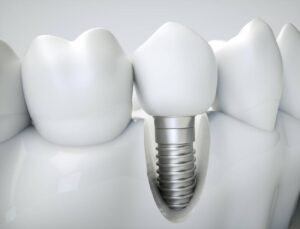Why No Dairy After Dental Implant?

One should not consume dairy products after a dental implant as they may cause excessive inflammation. In addition to that, dairy products may get infected because of bacteria, and one may also need to do more chewing if sticking to merely soft foods.
Dental implants are what is most commonly used today to replace lost teeth. But after the operation, do you know that your dietary choices can affect your healing process very much? London dentists often advise their patients not to consume any dairy products during the first few weeks after implant surgery.
We take apart the information, call the shots, and even demonstrate what exactly you ought to do in London, both for dental implants and their successful healing.
Why Are Implants Followed by a Ban on Dairy Products?
1. Risk of Infection
The live bacteria are found in the dairy. Although they are not dangerous for most people, these bacteria (even those in the pasteurised milk/yoghurt) can become very active in the warm healing environment of your mouth.
The implant site is post-surgery, a site that is very fragile—thus, adding bacteria there can lead to peri-implantitis (infection around the implant), and the healing process will be slow.
2. Impact on Blood Clotting and Healing
Do not be surprised if calcium-rich dairy products may hinder the formation of a blood clot at the area of surgically intervention. The consequence can be that the bleeding will last for a longer period of time, and the healing process will be slow.
The blood clot plays a very important role in both the bone and gum tissue integration processes, which are logical underneath dental implants.
3. Dairy and Antibiotics: An Overlooked Issue
One of the medicines taken after an implant might be tetracycline or any other drug of the same group that gets less effective when dairy is taken concurrently.
The reason is that calcium makes a compound with the drug thus that part of the drug is not absorbed. You should definitely double-check with your dentist or pharmacist!
4. Inflammatory Response
The link between inflammation and some dairy products is there. The reason being, that especially full-fat or highly refined and processed dairy products can trigger mild inflammation in the body hence the swelling and the pain can become more severe during the first couple of days after surgery.
5. Gastrointestinal Side Effects
For example, dairy may cause the following symptoms in those who are susceptible to it and have undergone an operation: nausea, vomiting, and the production of mucus in excess.
These symptoms may prevent the wound from healing properly, and the integration of the implant can also be delayed.
How Long Should You Avoid Dairy After an Implant?
The typical recommendations for people who have undergone dental implants are –
- No dairy consumption should be permitted for a period of at least 1 week after the operation.
- Resumption of the diet (including dairy) should take place only after the removal of the stitches and the recovery of the wound without the presence of any kind of infection or inflammation
- In case you are taking antibiotics, please refrain from dairy products until the end of the regimen and do not forget to confirm this with your dentist or pharmacist.
